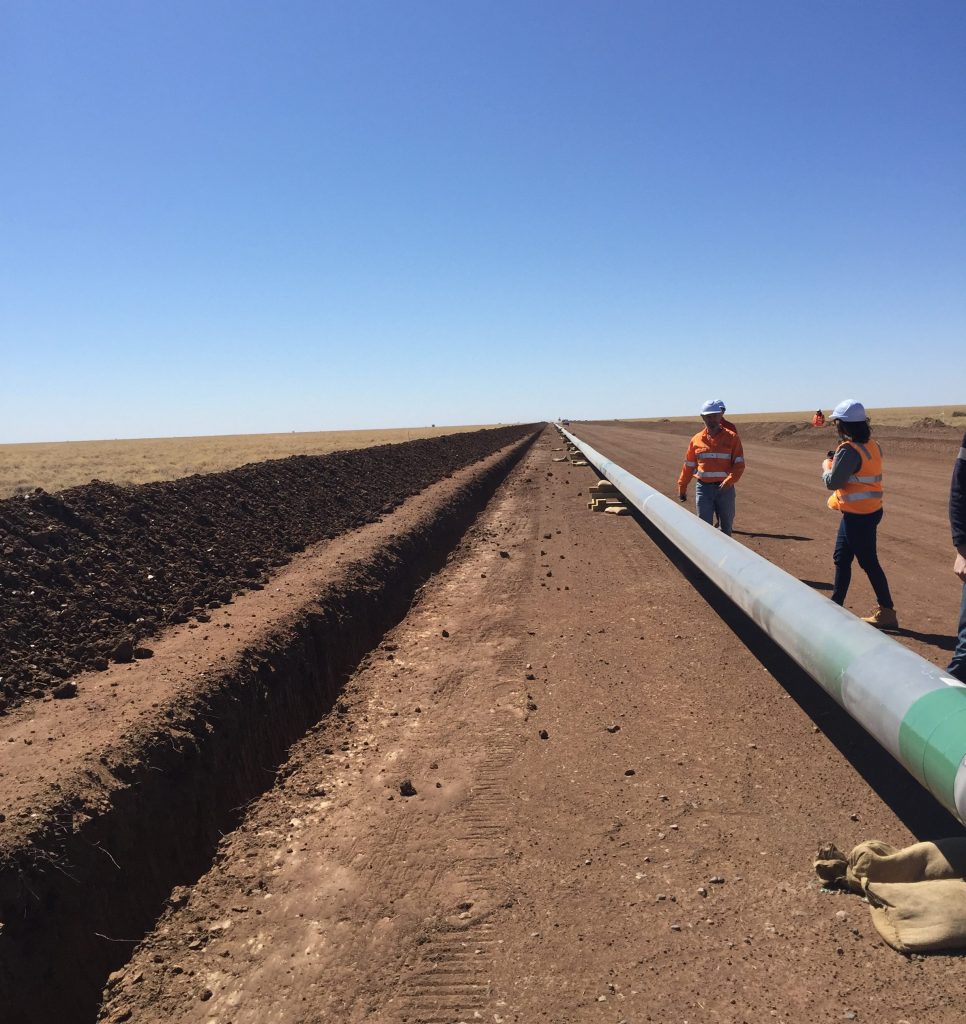Achieving data integrity in the energy sector
Access to data and the ability to interpret it in a meaningful way enables organisations to make more informed decisions about business processes and operations. However the use of different data sources and platforms can affect the reliability of data and compromise its suitability to influence decisions.

Over the lifecycle of an energy project, a number of activities are conducted that, by their nature, accrue large amounts of data. For example, pipeline owners and operators need to record and analyse information about pipeline construction and maintenance in order to understand how they can better protect assets and prevent incidents from occurring.
This data can provide valuable insights into project workflows and asset condition, supporting critical decisions across the asset lifecycle and optimising project efficiency.
Utilising data to make more informed decisions improves asset longevity, reduces management and administrative costs, and ensures regulatory compliance.
As Karen Thompson, Team Leader – Client Success at Mipela GeoSolutions, explains, the sheer amount of data collected during an asset’s lifespan can be overwhelming. Mipela GeoSolutions has worked with a variety of companies within the energy industry, including AGL Energy, Origin, ERM Power and Citipower Powercor, to ensure the right people are connected with the right information.
“There is a huge amount of data collated across the lifecycle of an asset (from initial project analysis to operations to decommissioning) – whether it be a pipeline construction, mine or any other lineal asset,” Ms Thompson said.
“For example, you’re in the early planning phases of developing a lineal asset. Before you send someone out to “walk the line” you’ll most likely engage people including an environmental consultant, a GIS consultant and a cultural heritage consultant etc. Each of these people commonly work independently to provide you with the information you need to progress your plans. Some of this information is also used to establish leases and property acquisitions.
“A lot of this data is reproduced unknowingly across the independent consultants and repetition costs money. And this is just in the planning phase, then there’s engagement with landowners and other stakeholders, or field and maintenance teams once the project moves to operational mode.”
Often, there are multiple sources of asset data, with information about an asset coming from a patchwork of systems or software.
Data that is being processed by a variety of systems can be incoherent, difficult to manage and time-consuming to collate and organise. Important information may get missed and in trying to keep track of it all, the ability to extract real value from the data being gathered can be compromised.
Data management the right way
In a world driven by technology, data integrity and quality data management practices are fundamental to business success.
Ms Thompson said the most efficient and cost-effective way to manage data from project beginning to end is to implement a truly integrated solution that offers reliable information from a single, trusted data source.
“When planning a project or asset, a client will often think of the project as a staged approach. Many tasks are disparate to one another. Treating data as an asset that can be reused from a centralised, single source of truth is a cost effective way to manage data.Set it up once and use it often – you don’t need to reinvent the wheel every time,” Ms Thompson said.
“Multiple data sources increase the risk or error, while a single source of data does not.”
Mipela offer a range of integrated software solutions that report and analyse data, improve data quality, manage business processes efficiently, streamline task timeframes, improve communication and accountability and simplify operations.
Its X-Info software suite was born from the idea that it could help organisations drowning in vast amounts of information and unify this information into a simple, secure, centralised and accessible solution.
“Mipela can help you map out the lifecycle of your project and work with you to plan how you can mitigate the repetition. Centrally manage all of your data – geospatial and other business information – in one single source of truth; connect the right people to the right information; provide real time data entry from the workers in the field; and reporting on demand,” Ms Thompson said.
Using data to maximise asset investment
Formerly, one of Australia’s largest energy companies used multiple systems to manage compliance, compensation, contracts and stakeholder relations for land assets. Each system served its purpose but none were able to provide management with a single view of where things were at, leading to inefficiencies in capturing and reviewing data and processes.
The organisation required a complete and organised solution to support the lifecycle of their assets, rather than separate phases, in order to truly realise the value of their investment.
Ms Thompson said the ability of X-Info Connect to organise and centralise business systems gave users access to the right information in a secure environment.
“Mipela’s products are flexible and can be configured to suit a company’s business processes. Most clients also adopt a continuous improvement and optimisation approach to how they use Mipela products,” Ms Thompson said.
“Our point of difference is our ability to be flexible with our solutions, we can align to a company’s business processes and not put a square peg in a round hole like others may.”
Wade Elofson, Founder of Powered, an Australian energy and resource focused business development company that helps Mipela to grow its business in Australia, said that Mipela have fully embraced the digital progress of the energy industry with its focus on how technology can meet the needs of its clients.
“Mipela draws on its extensive experience and its powerful X-Info product suite to build tailored workflow automation, stakeholder management and mobile data capture solutions which reduce costs and improve business efficiency,” Mr Elofson said.
Ms Thompson said that Powered have been instrumental in helping Mipela connect with the wider industry.
“The team at Powered are constantly working within the energy and infrastructure industry, talking with people every day. They know what a Mipela opportunity looks like and are able to make the appropriate introductions at the right time.”


